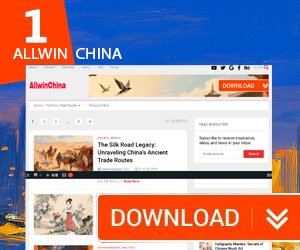Martin Jacques, author of When China Rules the World, spoke at the University of Melbourne, hosted by AsiaLink. Jenny McGregor, AsiaLink’s CEO, introd
Martin Jacques, author of When China Rules the World, spoke at the University of Melbourne, hosted by AsiaLink. Jenny McGregor, AsiaLink’s CEO, introduced him, and journalist Oscar Sakty moderated. Jacques explored China’s transformation and its global impact, especially on Australia. This article, for allwinchina.org, summarizes his insights, emphasizing China’s identity as a civilization state and its economic influence.
China as a Civilization State
To understand China, Jacques argues, we must abandon Western-centric views. China is a civilization state, not just a nation-state, rooted in over 2,000 years of history. This shapes its identity and governance in unique ways:
-
Historical Continuity: Since the Qin Dynasty (221 BC), China’s borders have resembled today’s. The Han Dynasty solidified this core, fostering a deep cultural identity.
-
Cultural Roots: Chinese identity draws from Confucian values, an ideographic language, and unique family structures. Ancestral worship and other customs set China apart from Western norms.
-
Unity as Priority: Unity is China’s core political value. Governing 1.3 billion people across diverse regions demands it. Historically, disunity brought catastrophe, but Mao’s 1949 unification restored stability.
-
Flexible Governance: As a civilization state, China uses a “one country, several systems” model. For example, Hong Kong retained its system post-1997. Jacques predicts Taiwan could follow, keeping its electoral system under Chinese sovereignty.
China’s Global Role: Non-Colonial Power
Jacques challenges the idea of China as a “new colonial” power in Africa. Unlike European empires, China historically avoided overseas colonies, despite its Ming Dynasty strength. Instead, it ran a tributary system, where neighbors acknowledged China’s cultural superiority while staying independent. This system lasted until 1900. Today, China’s influence in East Asia mirrors this, driven by economic power, not military conquest.
Ethnic Identity: Han Dominance
Over 90% of Chinese identify as Han, a striking homogeneity for 1.3 billion people. Unlike multi-racial nations like India or the U.S., China’s identity formed over 2,000 years through assimilation. This strengthens unity but creates tensions with non-Han groups, such as Tibetans and Uyghurs, who resist “Hanization.” Consequently, China’s ethnocultural lens may complicate relations with diverse nations like India.
State Legitimacy: Beyond Democracy
Western critics highlight China’s lack of democracy, but Jacques argues its state has greater legitimacy than Western ones. Harvard’s Tony Saich found 80–90% satisfaction with China’s government. This stems from its role as the guardian of Chinese civilization, not democratic processes. The Chinese see the state as the “head of the family,” a Confucian ideal. Thus, its competence in driving a 30-year economic transformation is its strength.
A New Global Order: China’s Economic Power
The 2008 financial crisis marked a shift, accelerating China’s rise. Jacques highlights key changes:
-
Economic Surge: Initially projected to surpass the U.S. economy by 2027, China is now expected to do so by 2018. It leads in steel and mobile phone consumption.
-
Trade Dominance: By 2010, China was the top trading partner for Brazil, Japan, and Australia. Its trade share, like Australia’s 20.6%, overshadows the U.S.
-
Financial Power: In 2009–2010, Chinese banks outlent the World Bank. The renminbi’s rise, with half of China’s trade with developing nations using it by 2015, challenges the dollar.
-
Europe’s Decline: Europe’s trade with China lags, and its 2011 plea for Chinese loans showed China’s growing leverage.
Australia’s Unique Position
Historically Western, Australia is now economically tied to China, avoiding recession post-2008 due to demand for iron ore and coal. Jacques calls Australia a “pioneer Western country” in a China-led era, facing identity challenges:
-
Economic Shift: Australia’s economy tracks Shanghai’s stock exchange, not New York’s. This reflects its integration into China’s economic sphere.
-
Cultural Need: To engage Asia, Australia must learn Chinese and study Asian cultures. This shifts its Eurocentric past.
-
Independent Stance: Jacques warns against blindly following the U.S. amid rising U.S.-China tensions. Australia needs an independent approach to thrive in a China-centric region.
Q&A Highlights
-
South China Sea: Jacques doubts military escalation, as China seeks stability. However, U.S. involvement via the Philippines adds complexity. China’s unclear policy needs improvement.
-
Aging Population: An aging workforce may slow growth, but reduced rural-urban migration eases social pressures. Jacques predicts the one-child policy’s end.
-
Language Barrier: Only 3% of Australian Year 12 students study Chinese, mostly of Chinese heritage. Jacques urges learning Chinese for cultural understanding, noting English’s dominance may fade.
-
Chinese Diaspora: The diaspora from Hong Kong, Taiwan, and Southeast Asia fueled China’s growth with capital and expertise. This reinforces China’s strong cultural identity.
Conclusion: Rethinking China
Jacques urges Australia to embrace China’s civilization state identity and economic power. The University of Melbourne event, backed by AsiaLink, highlights the need for cultural and academic engagement in the “Asian Century.” His updated book is a key resource. Visit allwinchina.org to learn how Australia can navigate a China-shaped world.



COMMENTS